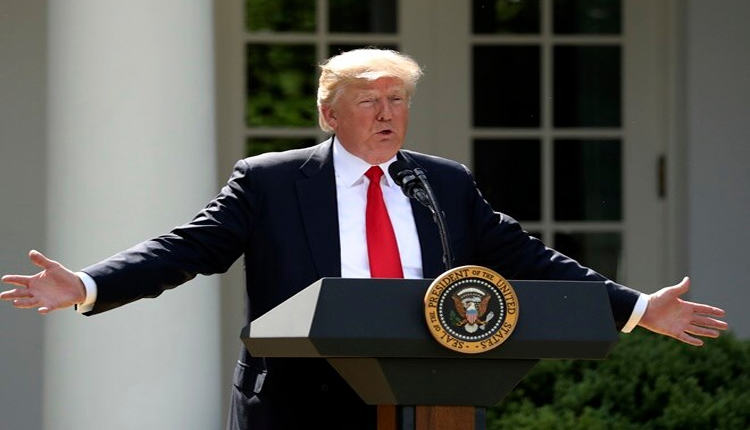Washington: President Donald Trump took an aggressive move in his trade policy by implementing a total tariff on international movie productions because he regarded the foreign film industry as endangering national security. President Donald Trump released an announcement regarding the 100% tax on non-US movies through his Truth Social post, which aims to support the struggling US film industry despite sparking immediate worries from studio executives and global market players.
Trump issued a proclamation which focuses on foreign-made movies because he believes Canada, along with the UK and Australia, provides significant tax benefits to American film producers, thus leading to a fast decline in Hollywood. These countries are carrying out an orchestrated plan to damage American cinema, according to Trump, through his statements about foreign films which function as propaganda tools. The president announced he ordered the U.S. Trade Representative with the Department of Commerce to immediately begin implementing the new tariff and added that America should make movies at home once again.
X user Howard Lutnick delivered a quick reply but failed to outline the potential implementation of the tariff as Commerce Secretary combined with President Trump. Industry uncertainty remains high because executives cannot determine when the proposed tariff will affect movies made partially in foreign locations. Does the imposed tariff potentially reach major streaming platforms working extensively overseas, such as Netflix? The policy would affect the production of both independent foreign movies and big-budget international blockbusters that assemble their casts from different parts of the world.
Trump made this announcement through his selection of actors Mel Gibson, Sylvester Stallone and Jon Voight as “special ambassadors” in January to help rejuvenate the movie business. The three ambassadors have not launched any noteworthy undertakings for the industry. A new tariff policy emerges during rising international trade conflicts as Trump has introduced basic import tariffs at 10% and heavy import duties of 145% on Chinese products, leading to Chinese trade countermeasures which reduced American film market access.
Hollywood’s challenges are well-documented. U.S. film productions saw their spending decline by 26% from 2022 to 2023 because of employee stoppages, combined with COVID-19 pandemic impacts and international subsidy programs. Two countries, namely Australia with Anyone But You and New Zealand with The Lord of the Rings, have increased their film industries through financial rebates. To recover soundstage production in Los Angeles, Governor Gavin Newsom seeks to boost tax credits to challenge UK and Ontario competitors for business.
The introduced tariff comes with the risk of negative consequences for the United States. William Reinsch, from the Centre for Strategic and International Studies, and a former Commerce official predicted trading partners would retaliate strongly because the U.S. film industry maintained a $15.3 billion trade surplus in 2023. Through his LinkedIn post, producer Randy Greenberg expressed worry that rising production expenses could force studios to climb ticket prices, which would reduce theatre attendance. The taxation of films as intellectual property faces doubts along with criticism against overseas production locations for U.S. movies that reduce costs and generate creative value.
Global reactions have been swift. New Zealand Prime Minister Christopher Luxon committed to defend his nation’s screen industry, and Australian screen policy expert Ben Eltham feared the tariff could break the connection between the local workforce and international film projects. American studio executives conducted urgent teleconferences to analyse the repercussions right before the upcoming Cannes Film Festival, since they traditionally do foreign distribution business during that period.
The tariffs part of President Trump’s protectionist strategy presents an unknown potential effect on the Hollywood industry while preserving his overall protectionist political philosophy. The industry awaits transformative changes as the president fights to revive American cinema in an environment that actively promotes international film cooperation.



Comments are closed.